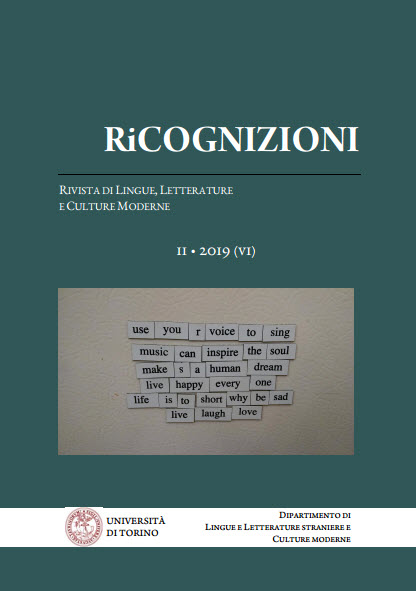…AND ALL THE REST IS LITERATURE. BETWEEN ACTOR AND POET. FOR AN INTERPRETATION OF PAUL VERLAINE
DOI:
https://doi.org/10.13135/2384-8987/3129Keywords:
Verlaine, Literature, Poetry, Actor, InterpretationAbstract
The following article creates a parallel between the two phases of the literary work of French poet Paul Verlaine and the reflections on what an actor can do concerning the interpretation of his poems.
Starting from the parnassian period of his work, focused on the pursuit of objectivity and technical perfection (art for art's sake) closely linked to the classical canons, the contribution shows how Verlaine's poetry had never been truly without its intimate feature. The meeting with the young poet Arthur Rimbaud changed Verlaine's writing into a new way of conceiving poetry and poet's mission: a combination of musicality, 'unpoetical' words taken by the common language and sensibility.
Likewise, the actor struggled between choosing a formal interpretation of the author in which the text is point of departure and destination or, on the contrary, decide for a more intimate interpretation in which subjectivity is likely to overcome the text.
Downloads
Published
How to Cite
Issue
Section
License
RiCognizioni is published under a Creative Commons Attribution 4.0 International License.
With the licence CC-BY, authors retain the copyright, allowing anyone to download, reuse, re-print, modify, distribute and/or copy their contribution. The work must be properly attributed to its author.
It is not necessary to ask further permissions both to author or journal board.








